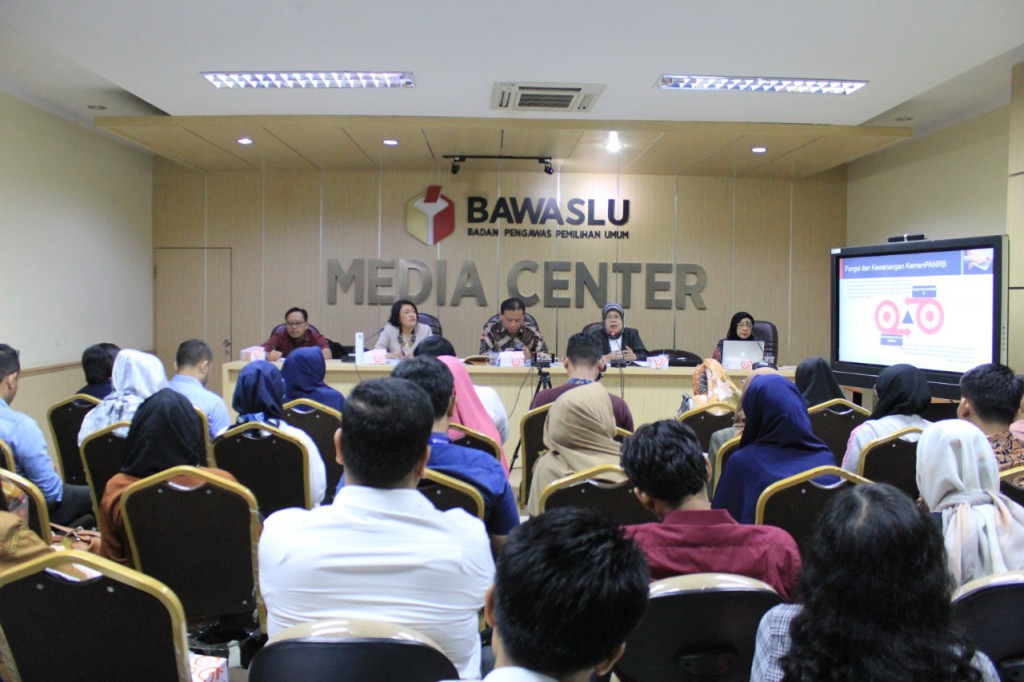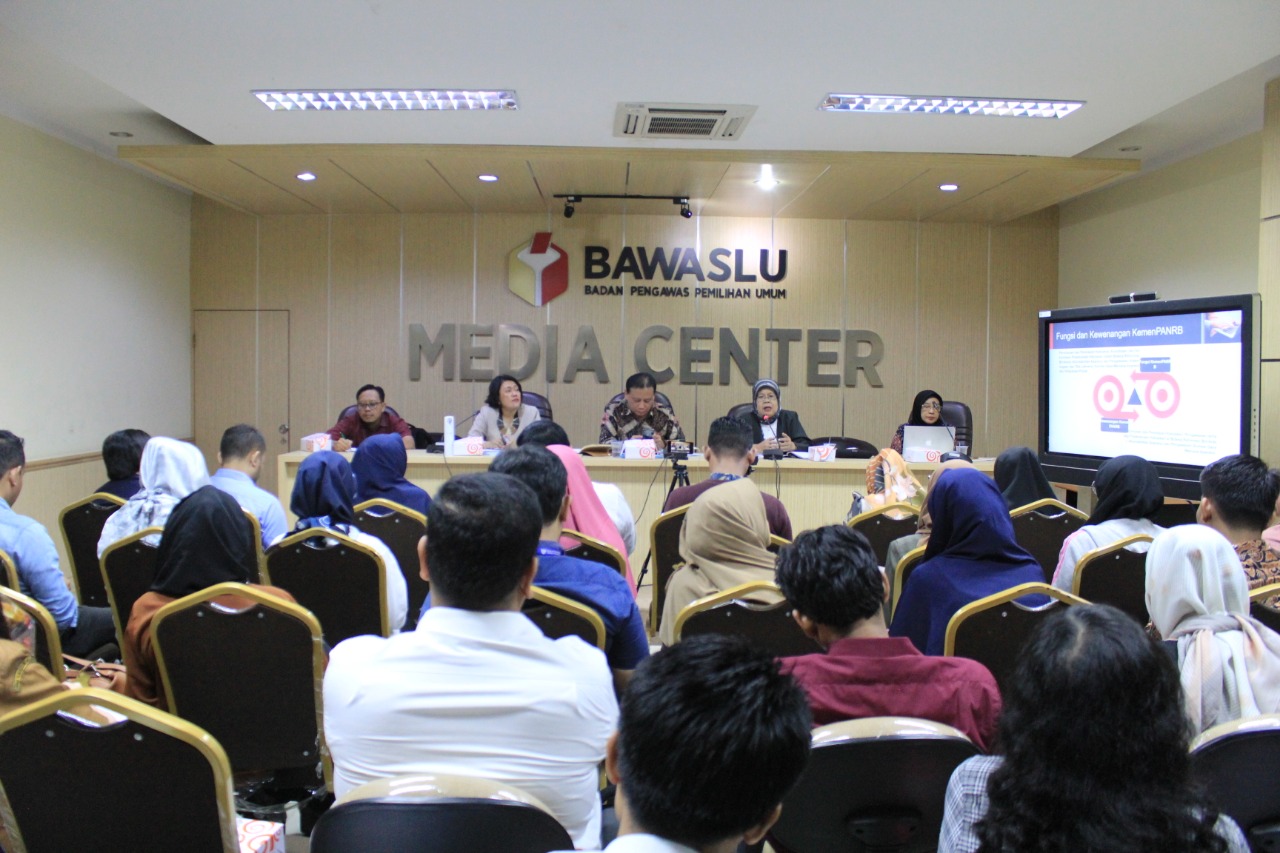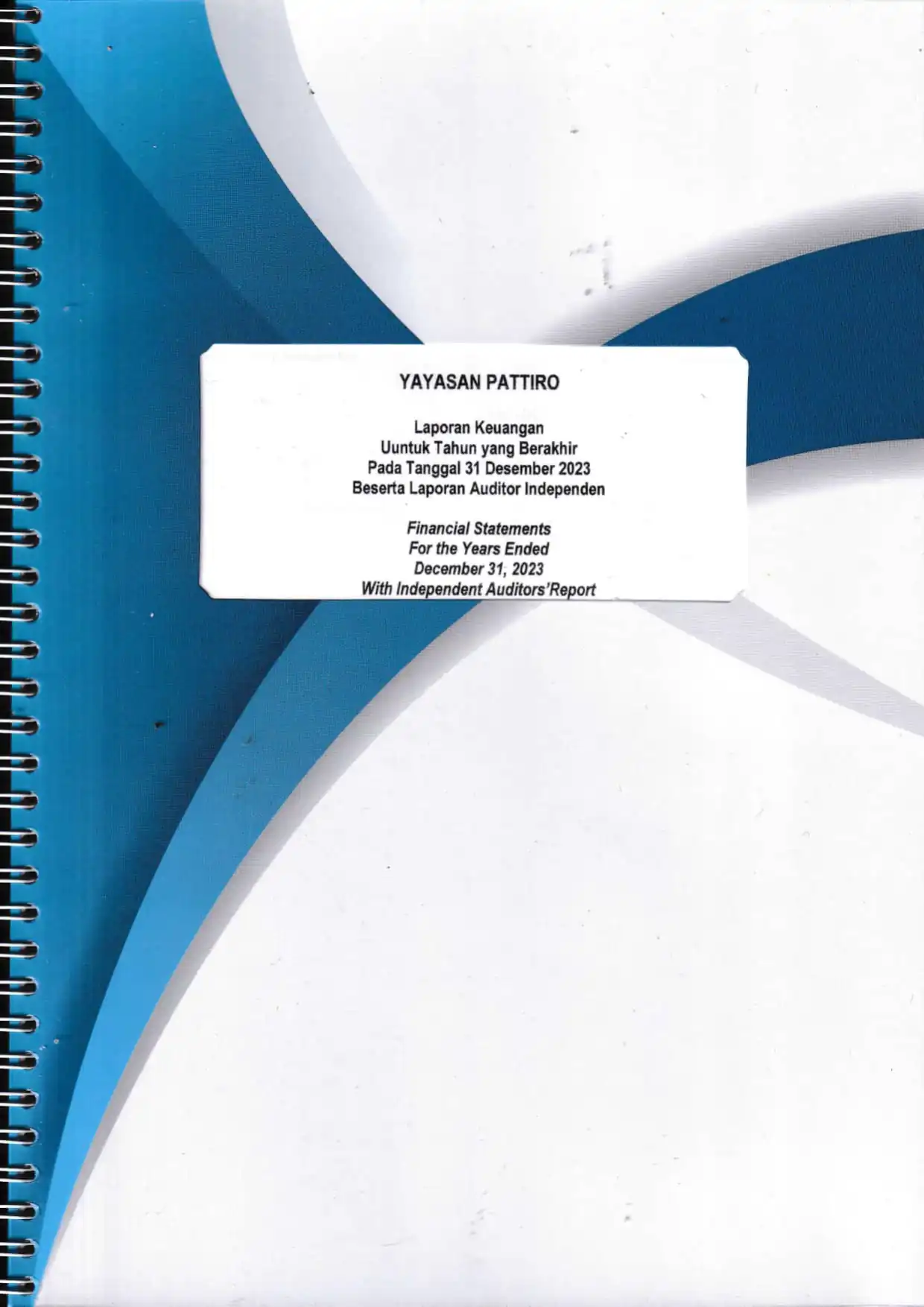Reflections on the 2019 Election:
“ASN Neutrality Violations Still Widespread, Enforcement of Sanctions Weak”
Jakarta, 6 August 2019

UU no. 5 of 2014 concerning State Civil Apparatus (UU ASN) states that the function of ASN is the spearhead of public services and as the glue and unifier of the nation. Therefore, ASNs are required to be neutral in carrying out their work and in their daily lives. Neutrality is part of the discipline, code of ethics and code of behavior for ASN that must be adhered to. Violation of neutrality means violation of the discipline, code of ethics and code of conduct.
A neutral attitude must also be maintained by ASN in the political realm. This is expressly regulated in the ASN Law, Law no. 7/2017 concerning Elections (Election Law) PP no. 53/2010 concerning Civil Servant Discipline. However, unfortunately, there are still many ASNs who violated neutrality during the 2019 election. The results of monitoring by PATTIRO, KPPOD, Bandung Initiative Association, PATTIRO Semarang, PATTIRO Malang, and NGO networks in four cities, namely Jakarta, Bandung, Semarang and Surabaya, found at least 89 cases of violations. Of the 89 cases discovered during the monitoring period from March to May, 66 of them were found on social media. The types of violations that are usually committed on social media are uploading images or photos of election participants and responding to them in the form of comments and likes.
Apart from social media, types of neutrality violations that were encountered directly included attending declarations of support for election participants (8 cases), being involved in campaigns and holding activities that showed partiality (8 cases), mobilizing other people to support election participants (8 cases). 4 cases), being a resource person at events organized by election participants (2 cases), and installing campaign props (1 case). These findings show that ASN neutrality is still a challenge in itself.
In response to this, PATTIRO encouraged the State Civil Apparatus Commission (KASN) as the institution mandated to monitor the neutrality of ASN to be more proactive in collecting reports from the public and following them up by conducting investigations and evidence. More important than that, KASN is expected to prepare a report with strong evidence, so that recommendations submitted to the Civil Service Development Officer (PPK) as ASN’s superior can be followed up with sanctions enforcement. As regulated in the ASN Law, KASN submits reports of violations of the ASN code of ethics and code of behavior to the PPK and at the same time recommends to the PPK to determine sanctions for the ASN concerned. If the PPK does not implement its recommendations, KASN can report to the President and recommend the application of sanctions to the PPK.
Strengthening KASN recommendations is important, considering that from past experience many PPK have ignored KASN recommendations. KASN itself admitted this in its report entitled “The Urgency of Enforcing the Neutrality of State Civil Servants” December 2018 edition, which stated that KASN’s recommendations regarding violations of ASN neutrality in regional elections were largely ignored by the PPK. In addition to strengthening recommendations, PATTIRO also encourages KASN to take a collaborative approach with the Ministry for Administrative Reform, Bureaucratic Reform (KemenPANRB), the State Civil Service Agency (BKN), and the Ministry of Home Affairs (Kemendagri) to optimize support so that the recommendations issued can be complied with by the PPK. This is important to do because apart from KASN, KemenPAN RB and BKN are the ministries/institutions responsible for providing ASN development. Meanwhile, the Ministry of Home Affairs is responsible for providing guidance to Regional Heads, so that they have a strategic position to encourage PPK elements from Regional Heads to comply with ASN recommendations.
As a form of support for KASN’s duties, as many as 89 cases of violations of ASN neutrality as a result of monitoring by PATTIRO and its network have been reported to KASN via the KASN complaint application, namelyreport.kasn.go.id. The monitoring process involved approximately 80 people from NGO networks spread across four cities. However, not everyone involved in monitoring has the will and courage to report to the ASN Commission. This is caused by several factors, including: ASNs who violate are friends, relatives or close people so they are reluctant to report them; there is no protection mechanism for whistleblowers; as well as a sense of apathy, the report will not be followed up by KASN. ***





